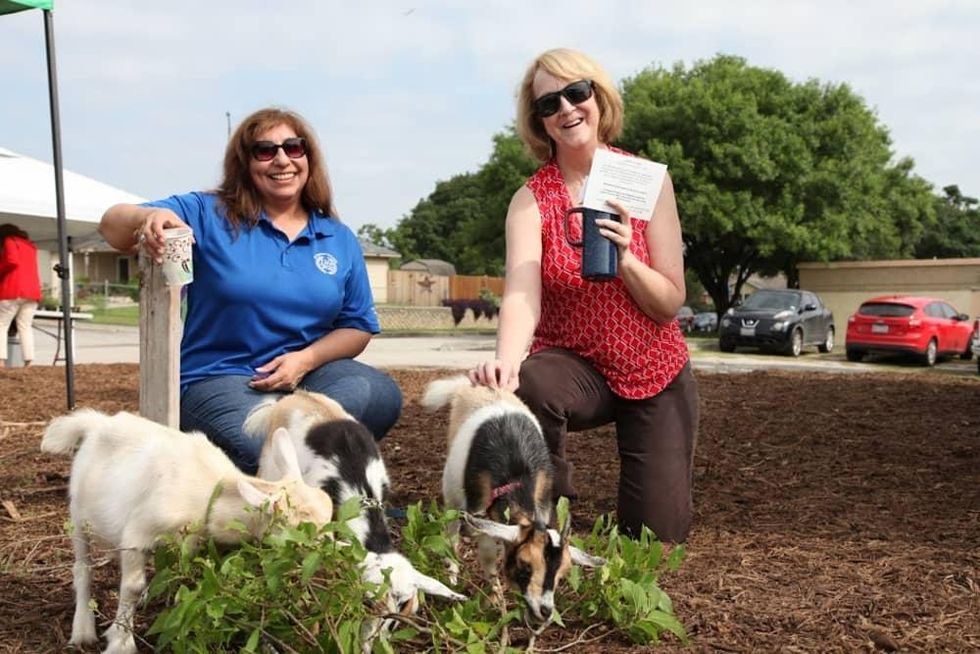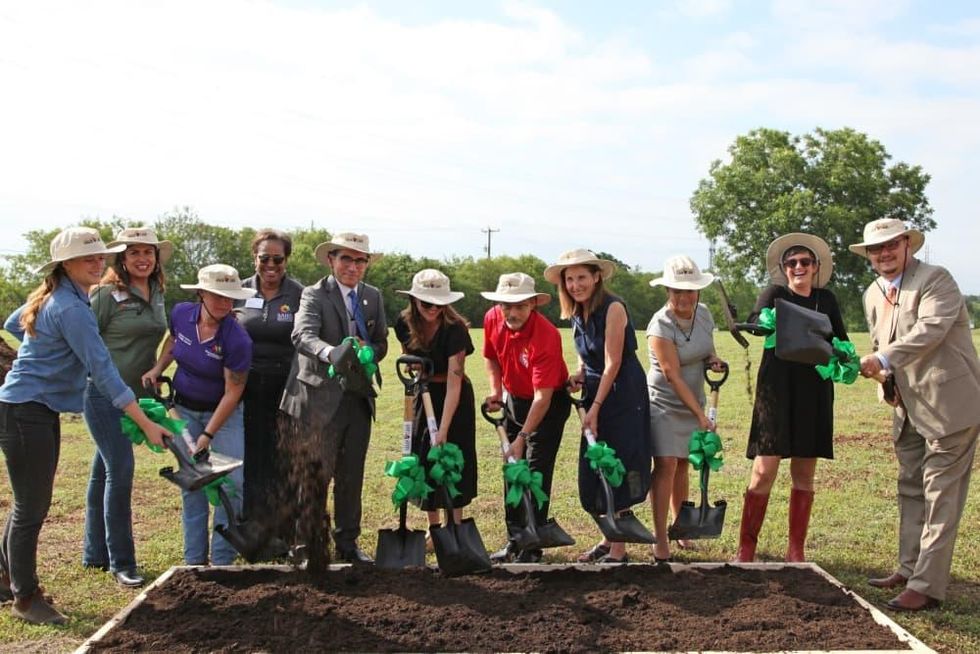Plowing into Town
New neighborhood urban farm crops up on San Antonio's East Side
A new urban farm is taking shape on San Antonio’s East Side, designed to help fight food insecurity in an area where many residents lack access to fresh, healthy produce. On June 12, San Antonio Housing Authority, San Antonio College’s William Sinkin Eco Centro, and Compost Queens gathered to break ground on the Garcia Street Urban Farm at 218 Garcia St.
The 4.1-acre urban farm will be one of the largest of its kind in San Antonio, and will serve as an educational and food production hub in a food desert. (Food deserts are classified as neighborhoods where most residents live more than one mile from the nearest supermarket.)
“Today, we celebrate a community resource that will address food insecurity and provide educational opportunities to help residents learn about healthy choices,” David Nisivoccia, SAHA president and CEO, says in a press release.
The farm will grow a variety of crops, and contain a medicinal garden, pollinator gardens, a chicken coop, a picnic area, and an educational center. Project organizers focused on water and soil conservation in designing the farm in order to make it sustainable and to reduce flooding and drainage runoff.
The fruits and vegetables grown at Garcia Street Urban Farm will be offered to area residents, who will also be provided the chance to rent their own space to grow produce.
Residents will be able to “pay” for their plot by contributing a portion of their harvest to the neighborhood, volunteering on the farm, or promoting healthy food options and urban farming to community members.
Following 10 years in planning, this urban farm is part of SAHA’s Choice Neighborhoods Critical Community Initiatives plan funded through the U.S. Department of Housing and Urban Development’s Choice Neighborhoods Implementation Grant.
SAHA and other local partners have spent the last few years working to redevelop the former Wheatley Courts public housing complex into a mixed-income, high-quality community to revitalize this part of the East Side.
“It takes one item of a neighborhood to be improved, to improve the entire block. It’s a chain reaction,” says Zuleika Morales-Romero, director of HUD’s San Antonio field office.
Once farm construction is finished this fall, the Eco Centro will manage the farm in collaboration with Compost Queens. Eco Centro is a community outreach center for environmental sustainability. Compost Queens is a local compost recycling program that turns food waste into nutrient-rich soil.
This collaboration, project partners say, will result in opportunities for community members to engage in volunteerism, and to educate each other about healthy eating habits and urban agricultural research.
There’s been an uptick in urban farming around San Antonio; some advocates feel urban farms such as the Garcia Street project can also spark employment opportunities in that more people will be compelled to launch similar farms elsewhere or become certified in urban agriculture and teach others best practices.
The Garcia Street farm isn't the only initiative underway to reduce food insecurity in San Antonio. District 3 City Councilwoman Rebecca Viagran recently launched a pilot program to invite corner stores to carry fresh fruits and vegetables at affordable prices.
A handful of stores thus far have enrolled in the program, which currently focuses on the city’s South Side. But local leaders hope it’s successful so that more stores citywide, especially in low-income areas, will load up on fresh produce to increase people’s immediate access to healthy, affordable, locally grown food.


